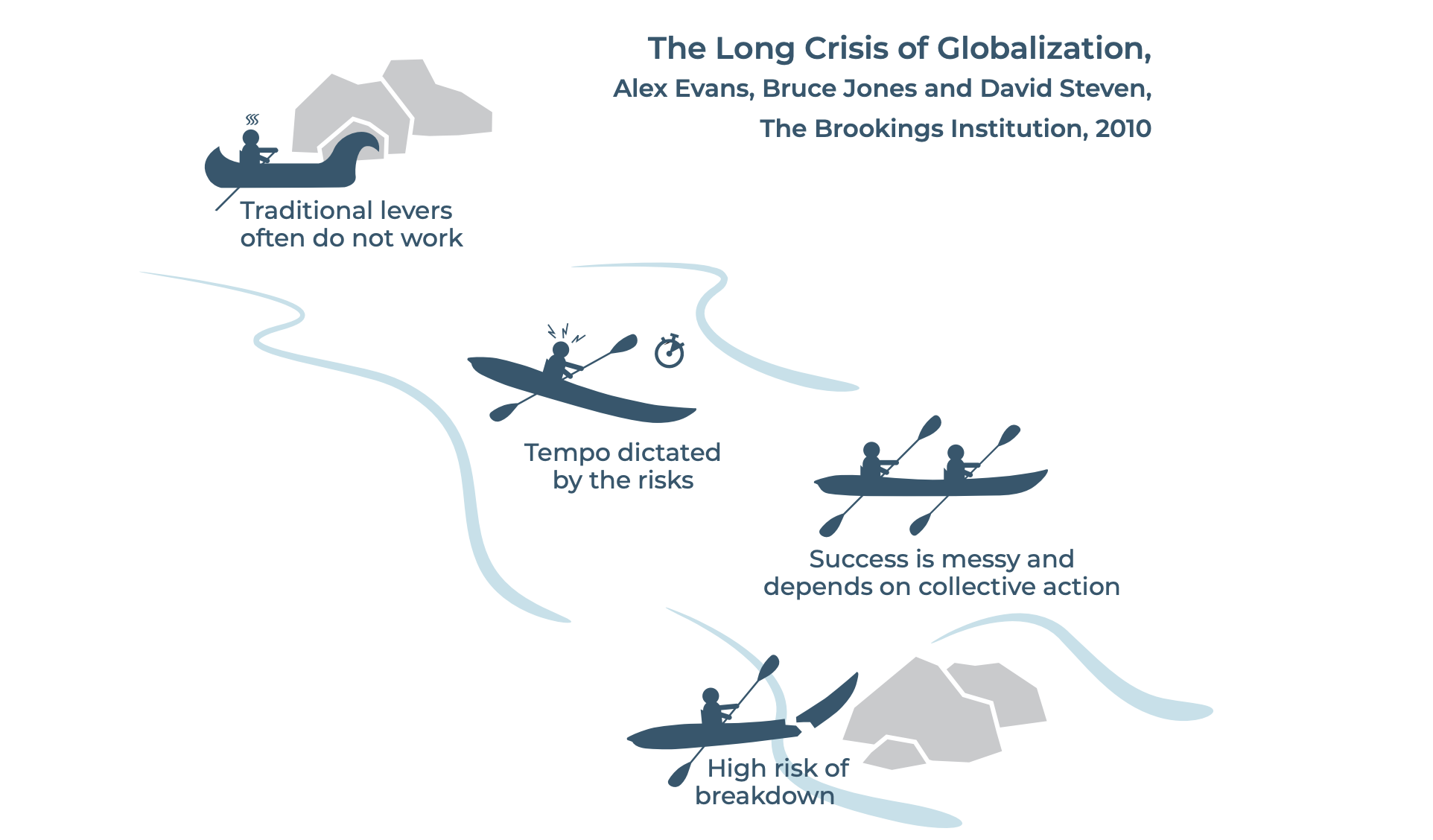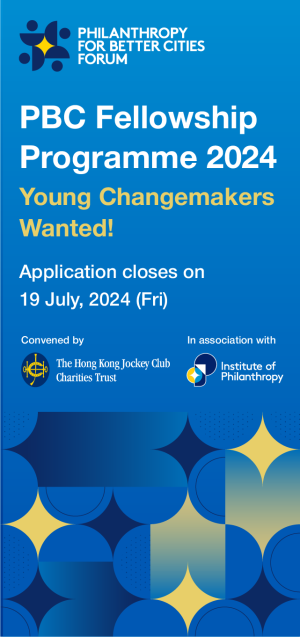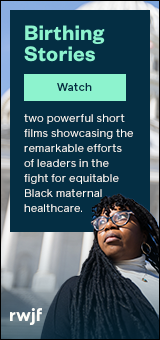This year, in the space of just a few months, the combination of three crises have wiped out decades of philanthropic investments in sustainable development, human rights and social justice.
Due to the impacts of the Covid-19 pandemic, extreme weather events and the Taliban’s swift takeover of Afghanistan – the successes of decades of work have vanished. Global poverty, hunger, domestic violence, and gender inequality have all risen, ecosystems continue to be destroyed at an unyielding rate and progress in education has taken a serious hit.
If these disruptions are the harbinger for the crisis-plagued future many experts predict, the philanthropic sector will have to find ways to break the vicious circle of investment, crisis, destruction, and rebuilding. We must move from working to patching up a world that is breaking apart, towards new ways of thinking of how we utilise crisis, towards embracing what we call ‘white-water philanthropy’.
Shooting the rapids
As the Long Crisis Network put it – creating change in crises can feel like ‘shooting the rapids’ – there is no way to turn around, and there are multiple ways to get down the river. There is a high risk of crashing, but nevertheless skilled river guides manage to alter their course with precise interventions of their paddles, constantly having to adjust their path, reading the river, and taking swift action.

Shooting the rapids: taken from ‘Shooting the rapids Covid 19 and the Long Crisis of Globalization’
Seeing crises in this context, the philanthropic sector needs to rethink how it considers and interacts with disruptive events.
- Crises are not just unfortunate events with damaging effects but the result of a failing system. Unless we fix the systemic problems, they will only increase in frequency and severity.
- Crises are not just disruptions to be mitigated, but opportunities for change. This is especially true when we see their potential to shift mindsets and change systems.
- Whitewater kayaking is a skill and, while a river might look calm at times, you should be prepared for the challenging section ahead. Though we might not be able to predict their exact nature, crises themselves are predictable and so, we can prepare for them. The more we engage in crises, the more we will be able to master the skill of navigating them.
- In the white-water, instead of waiting for the best opportunity, you need to use those that arise and use them quickly. Opportunities do not appear under a label in a portfolio and so they require agility and flexibility – being able to quickly move resources out of known silos.
- While the direction the water flows in cannot be changed, by choosing faster, calmer, or more dangerous sections of the river, you can alter the speed and the risk. Change is increasingly a reaction to crises: only changemakers who have learned to “navigate the rapids” unleashed during a disruption will play a role in shaping the change they create.
- Crises bring volatility, and as is often the case in financial markets, volatility requires risk taking. You should have multiple boats ready to go and allow them to steer autonomously, taking the risk that some of them do not make it down the river.
To respond to crises, philanthropic organisations or foundations must become nimbler. Some foundations have shown what this would look like, for example, releasing funds to support organisations that were struggling with the financial impacts of lockdowns, or boosting programs that saw a major roll-back during the covid crisis. However, little work is being done to evaluate and fund the opportunities for long-lasting, positive change that arise from the crisis itself.
In a crisis-ridden world where these disruptions are driven by the repeated failures of the same system, issue silos need to be broken down and portfolios need to be aligned with the roadmap of a crisis. These new portfolios should be flexible in scope and ready to be released in time. For example, a portfolio that releases funds under the headings of ‘recovery, resilience and prevention.’
Mindworks, a cognitive and social sciences lab-based and funded by Greenpeace East Asia, has conducted extensive research to understand how the individual and collective mind works during a crisis. The research reveals that crises provide excellent opportunities to shift narratives and norms, and to build social capital. You can find more concrete advice on how to do this in our Disrupted Mind Series (Part 1: Scientific Insights & Part 2: The Crisis Timeline) The big lesson we have learnt is that we have to start considering the impact of crises on collective mindsets and embrace their potential for creating fundamental change.
We know that life and change in the coming decades will be determined by crises. If philanthropic work can already start to adapt to that reality, it would significantly change how we tackle systemic issues ranging from gender equality to climate change.
Stefan Flothmann is the Director of Mindworks, Greenpeace’s cognitive science lab.






Comments (0)